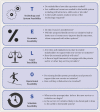District decision-making for health in low-income settings: a feasibility study of a data-informed platform for health in India, Nigeria and Ethiopia
- PMID: 27591204
- PMCID: PMC5009223
- DOI: 10.1093/heapol/czw082
District decision-making for health in low-income settings: a feasibility study of a data-informed platform for health in India, Nigeria and Ethiopia
Abstract
Low-resource settings often have limited use of local data for health system planning and decision-making. To promote local data use for decision-making and priority setting, we propose an adapted framework: a data-informed platform for health (DIPH) aimed at guiding coordination, bringing together key data from the public and private sectors on inputs and processes. In working to transform this framework from a concept to a health systems initiative, we undertook a series of implementation research activities including background assessment, testing and scaling up of the intervention. This first paper of four reports the feasibility of the approach in a district health systems context in five districts of India, Nigeria and Ethiopia. We selected five districts using predefined criteria and in collaboration with governments. After scoping visits, an in-depth field visit included interviews with key health stakeholders, focus group discussions with service-delivery staff and record review. For analysis, we used five dimensions of feasibility research based on the TELOS framework: technology and systems, economic, legal and political, operational and scheduling feasibility. We found no standardized process for data-based district level decision-making, and substantial obstacles in all three countries. Compared with study areas in Ethiopia and Nigeria, the health system in Uttar Pradesh is relatively amenable to the DIPH, having relative strengths in infrastructure, technological and technical expertise, and financial resources, as well as a district-level stakeholder forum. However, a key challenge is the absence of an effective legal framework for engagement with India's extensive private health sector. While priority-setting may depend on factors beyond better use of local data, we conclude that a formative phase of intervention development and pilot-testing is warranted as a next step.
Keywords: Decision-making; developing countries; framework; health system.
© The Author 2016. Published by Oxford University Press in association with The London School of Hygiene and Tropical Medicine.
Figures
References
-
- Asante AD, Zwi AB. 2007. Public-private partnerships and global health equity: prospects and challlenges. Indian Journal of Medical Ethics 4: 176–80. - PubMed
-
- Behrouzi F, Shaharoun AM, Ma'aram A. 2014. Applications of the balanced scorecard for strategic management and performance measurement in the health sector. Australian Health Review 38: 208–17. - PubMed
-
- Bossert T. 1998. Analyzing the decentralization of health systems in developing countries: decision space, innovation and performance. Social Science & Medicine 47: 1513–27. - PubMed
-
- Bryce J, Victora CG, Habicht JP, Black RE, Scherpbier RW. 2005. Programmatic pathways to child survival: results of a multi-country evaluation of Integrated Management of Childhood Illness. Health Policy and Planning 20(Suppl 1): i5–7. - PubMed
MeSH terms
LinkOut - more resources
Full Text Sources
Other Literature Sources
Medical



